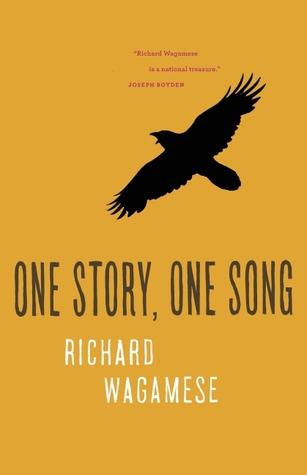 On a snowy day last week, my daughter and I participated in a women's Talking Circle at one of our city libraries. Christina called and invited me at the last minute, and suspecting that a Talking Circle might have something to do with the Truth and Reconciliation Commission's Calls to Action, I agreed to attend with her.
On a snowy day last week, my daughter and I participated in a women's Talking Circle at one of our city libraries. Christina called and invited me at the last minute, and suspecting that a Talking Circle might have something to do with the Truth and Reconciliation Commission's Calls to Action, I agreed to attend with her.(In case you missed my earlier Moodlings about the TRC, Canada has a long history of mistreatment of Aboriginal peoples, most especially through the Residential School System, which saw Aboriginal children taken from their families and put into schools far from their homes run by government and churches. The idea was to destroy the Aboriginal culture and replace it with a version of state-sanctioned Christianity -- your basic cultural genocide of the First Peoples in a country being settled by Europeans. The damage done by the Residential Schools is multi-generational, and many of the problems faced by Indigenous people continue. The Truth and Reconciliation Commission's efforts to address these injustices led to 94 Calls to Action, many of which are still only on paper.)
Our Talking Circle was facilitated by Sharon, one of Christina's university professors, and it began with a feast of bannock (!) and delicious beef stew. Chairs were arranged in a circle, and about a dozen of us sat together, discussing the snowy day for starters.
Soon Sharon gave us a page explaining talking circles. I was struck by this quote:
"The Circle has healing power. In the Circle, we are all equal. When in the Circle, no one is in front of you. No one is behind you. No one is above you. No one is below you. The Sacred Circle is designed to create unity..."
-Dave Chief, Oglala Lakota, Grandson of Red Dog/Crazy Horse's Band.
Then Sharon invited us to share our names and our genetic backgrounds, as each speaker held her turtle rattle. A talking circle is just that -- a place where a person who holds a special object has the opportunity to talk, and the rest of the people in the circle listen with respect and without judging, until it is passed to the next person. It turned out that a third of our group had some indigenous heritage, and the rest of us were children of "settlers" in Canada. So much history, so many things to be healed.
The second time around the circle, Sharon invited us to share about something on our heart. And in the sharing, we realized how we were different, and also how we shared many similarities. Struggles, sorrows, illness, joy -- we had all experienced them. I was also quite touched by the elderly Indigenous woman beside me, who passed on her speaking times, content just to listen, though I'm sure she had many stories she could have shared.
 And the third time around the circle, Sharon shared a story about a crow who wanted to be an eagle, from aboriginal author Richard Wagamese's book, One Story, One Song (2011, Douglas & MacIntyre, ISBN 1553665060). It spoke to all of us in different ways, and we expressed how the story fit with our lives. Then Sharon closed the circle with one more prayer, and we said our farewells and headed home through the snowy afternoon.
And the third time around the circle, Sharon shared a story about a crow who wanted to be an eagle, from aboriginal author Richard Wagamese's book, One Story, One Song (2011, Douglas & MacIntyre, ISBN 1553665060). It spoke to all of us in different ways, and we expressed how the story fit with our lives. Then Sharon closed the circle with one more prayer, and we said our farewells and headed home through the snowy afternoon.To experience a sharing circle with complete strangers made me see how Dave Chief's words about it having healing power and creating unity is absolutely true. Each person listened respectfully to everyone else, and though we came from diverse backgrounds as people of Aboriginal and settler heritage, the stories told and the tears that flowed bound us together in friendship in two short hours.
I am someone who is quite aware of the privilege I've grown up with, so I was a little apprehensive about how a circle would actually work. But it did work because no one blamed or judged anyone else, everyone was respected, and deep truths were spoken. We were all invited to share, we all listened, and we all came away with a deeper appreciation for each other's lived experience.
I'm not sure if Talking Circles are part of the Truth and Reconciliation Commission's 94 Calls to Action, but I really hope so. I'll have to read them to find out. Regardless, reconciliation requires sharing of life, deep listening to the struggles, hurts and joys of others, and a respect that leads to friendship. At our women's talking circle, we got a preview of what healing our nation, learning from Aboriginal people, and healing settler biases and prejudices could look like.
Hope for healing Canada comes through forgiveness, friendship, and community. If you ever have the opportunity to attend a talking circle, I'd highly recommend it.
And I think Richard Wagamese's book will be worth a read, too -- I'm going to borrow Christina's copy!
